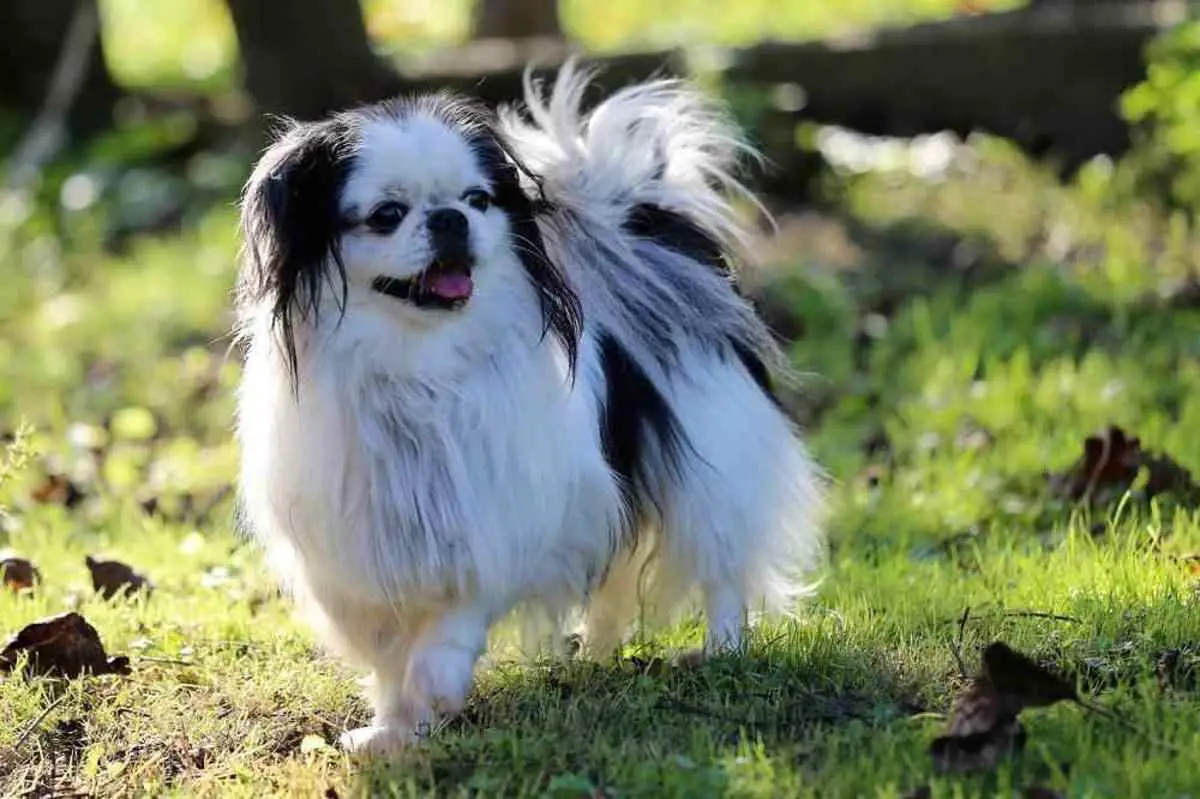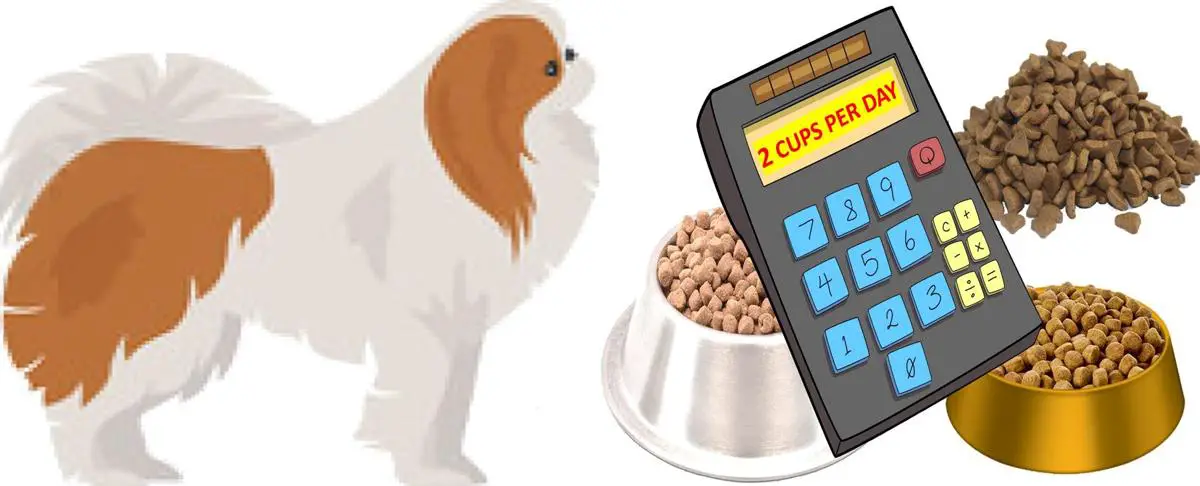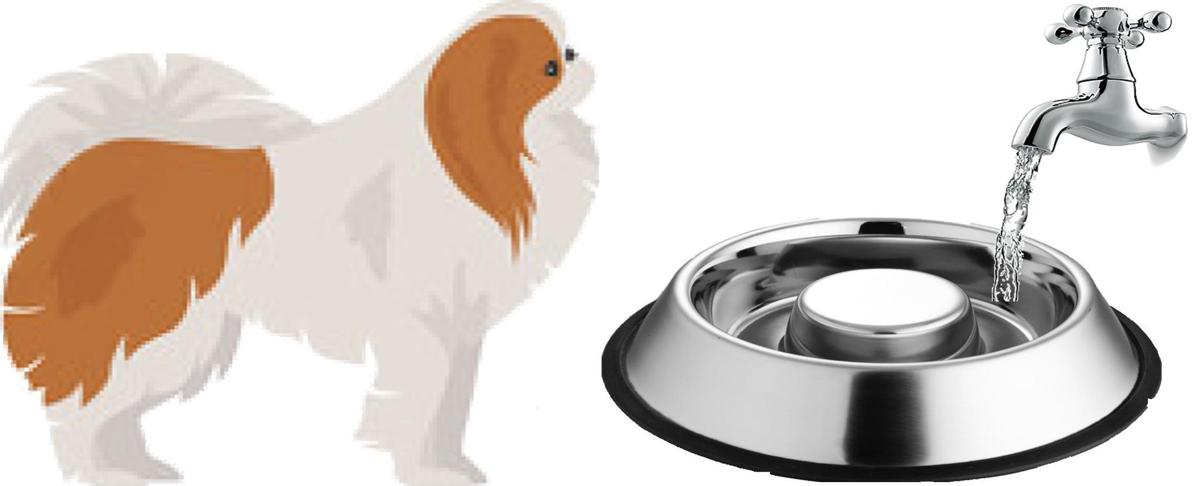Quick Links: Table of Contents
- Japanese Chin Breed Overview
- History of the Japanese Chin Breed. Where Japanese Chins came from
- What the Japanese Chin Looks Like
- How Much is the Japanese Chin Puppy?
- Best Japanese Chin Breeders
- Adopting or Rescuing the Japanese Chin
- Japanese Chin Growth
- Japanese Chin Litter Size
- How Fast Japanese Chins Can Run
- Good Names for Japanese Chins
- How Intelligent are Japanese Chins?
- How Popular are Japanese Chins with New Dog Owners?
- Health Problems in Japanese Chins and How to Prevent Them
- How to Take Care of Japanese Chin
- Dog Breeds That Are Similar to Japanese Chins
- Other Things to Know About Japanese Chins
Japanese Chin Breed Overview
The Japanese Chin is a tiny-sized dog.
The adult Japanese Chin stands 8 to 11 inches tall at the shoulder.
The Japanese Chin belongs to the Companion Dogs group.
Dogs in the Companion Dogs group, like the Japanese Chin, were bred to be companions for humans. Their main goal in life is to be with people, and they will be very sad if left to themselves for long hours day after day.
The fact that Japanese Chins belong to the Companion Dogs group is one of the reasons why Japanese Chins have the personality and temperament that they have.
The temperament of the Japanese Chin is generally described as:
- Alert
- Cat-like
- Independent
- Intelligent
- Loving
- Loyal
History of the Japanese Chin Breed. Where Japanese Chins came from
An old toy breed, the Japanese Chin is thought to have evolved from the Tibetan spaniel.
Ancient Chinese pottery and old Chinese temples contain depictions of dogs similar to the Chin.
It appears that the dogs originated in China.
According to reports, the Chinese Emperor gave a pair of chins to the Japanese Emperor.
European records of the Chin date back to the 1600s, when Portuguese sailors presented some Chins to Princess Catherine of Braganza as a gift.
Following a visit to Japan, Admiral Commodore Perry presented Queen Victoria with a pair of Chins.
As a result of World War I and the Japanese earthquakes, Chin numbers in Japan declined.
In 1977, the American Kennel Club recognized them as the Japanese Chin.
.
What the Japanese Chin Looks Like
The Japanese chin is a toy breed that is a super small dog.
It is either black and white, red and white, or black and white with tan points.
The coat of a Japanese Chin is long and soft with flowing locks that will need to be groomed monthly to keep it from snagging, matting, or tangling.
A Japanese Chin is a sensitive and intelligent dog that is reserved with strangers.
This breed only needs moderate exercise daily in order to stay lean and healthy.
It is advisable to introduce this breed often to as many people as possible when it is small so that aloof behaviors don`t dominate its personality.
.
How Much is the Japanese Chin Puppy?

The average price of a Japanese Chin puppy is $2110. The price of a Japanese Chin puppy ranges from $1800 to $2425.
A lot of factors determine the price of the Japanese Chin. These factors include what health records the Japanese Chin puppy has, the lineage of the Japanese Chin puppy, the US state the breeder is located in, etc.
To estimate how much you can expect to pay for a puppy Japanese Chin based on the many factors that determine the price of the Japanese Chin puppy, check out our calculator that lets you estimate how much you should expect to pay for the Japanese Chin puppy based on what you want in the puppy.
When looking to buy a puppy, look at buying a puppy only from well-established breeders that breed puppies primarily for the love of the Japanese Chin breed, and secondarily for profit. Do not buy a puppy from a puppy mill. Puppy mills mass-produce puppies in bad living conditions for maximum profit.
You may also consider adopting instead of buying a puppy. Adoption costs are very low compared to the price of a puppy.
Best Japanese Chin Breeders
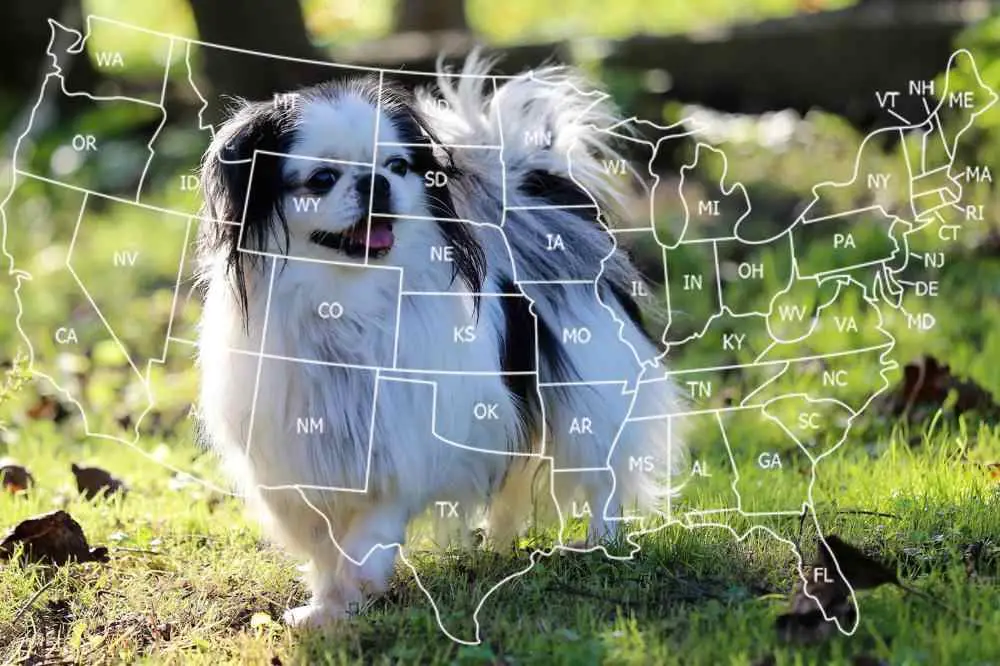
We have researched reputable Japanese Chin breeders that you can buy a puppy.
Go to this page for our complete list of reputable Japanese Chin breeders in various states in the United States.
On this page, you will see how much these breeders sell their puppies for, and how many puppies they have available.
A few of these breeders are listed below.
Linda Kelly ~ Innishfree Handpicked-Puppies
Puppy Price: Check with breeder
Norma Woody
Puppy Price: $-$
Jag`s Japanese Chin
Puppy Price: Check with breeder
Ike Wood
Puppy Price: Check with breeder
ShadowLand Japanese Chin – Dee Germany
Puppy Price: Check with breeder
Adopting or Rescuing the Japanese Chin
You may consider adopting a dog instead of buying a puppy. Many dogs, Japanese Chins included, are currently available for adoption in your local dog shelters.
These helpless but adorable dogs are waiting in dog shelters hoping that someday someone will rescue them. Dog adoption costs are lesser than the cost of a new puppy. Dog adoption costs are usually around $300 or even less.
In addition to your local dog shelter, another good place to find dogs that are available for adoption is petfinder.com.
Below is an adorable Male Japanese Chin named Louie that is currently available for adoption on Petfinder.com. You can find other lovely Japanese Chins like Louie on pefinder.com.
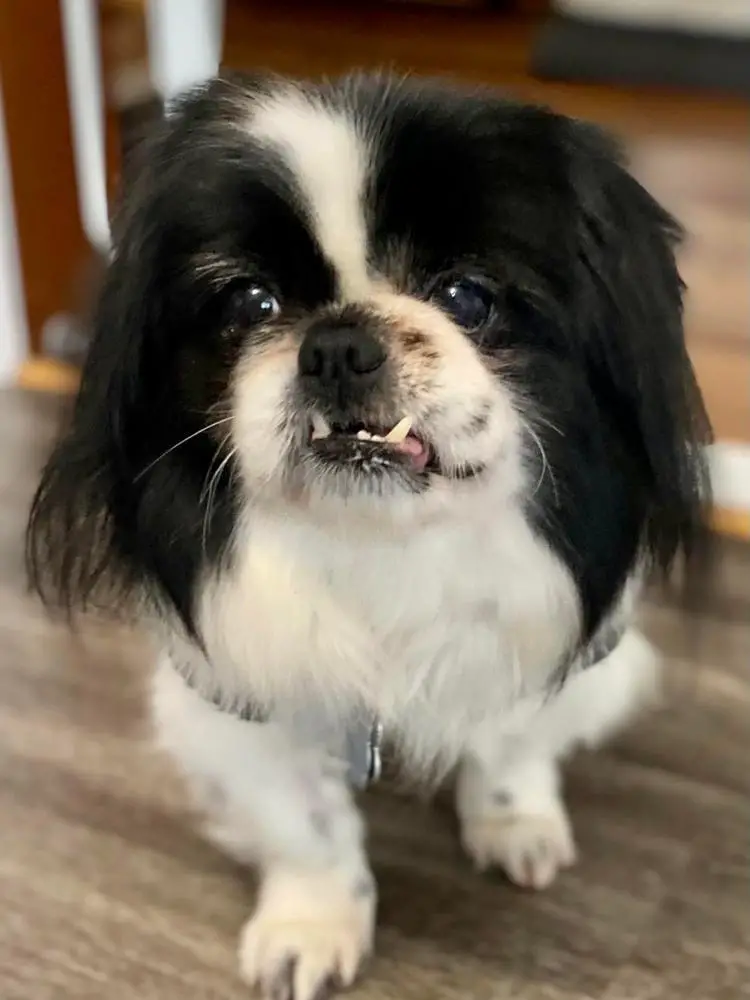
You can find more Japanese Chins that are available for adoption on petfinder.
Japanese Chin Growth
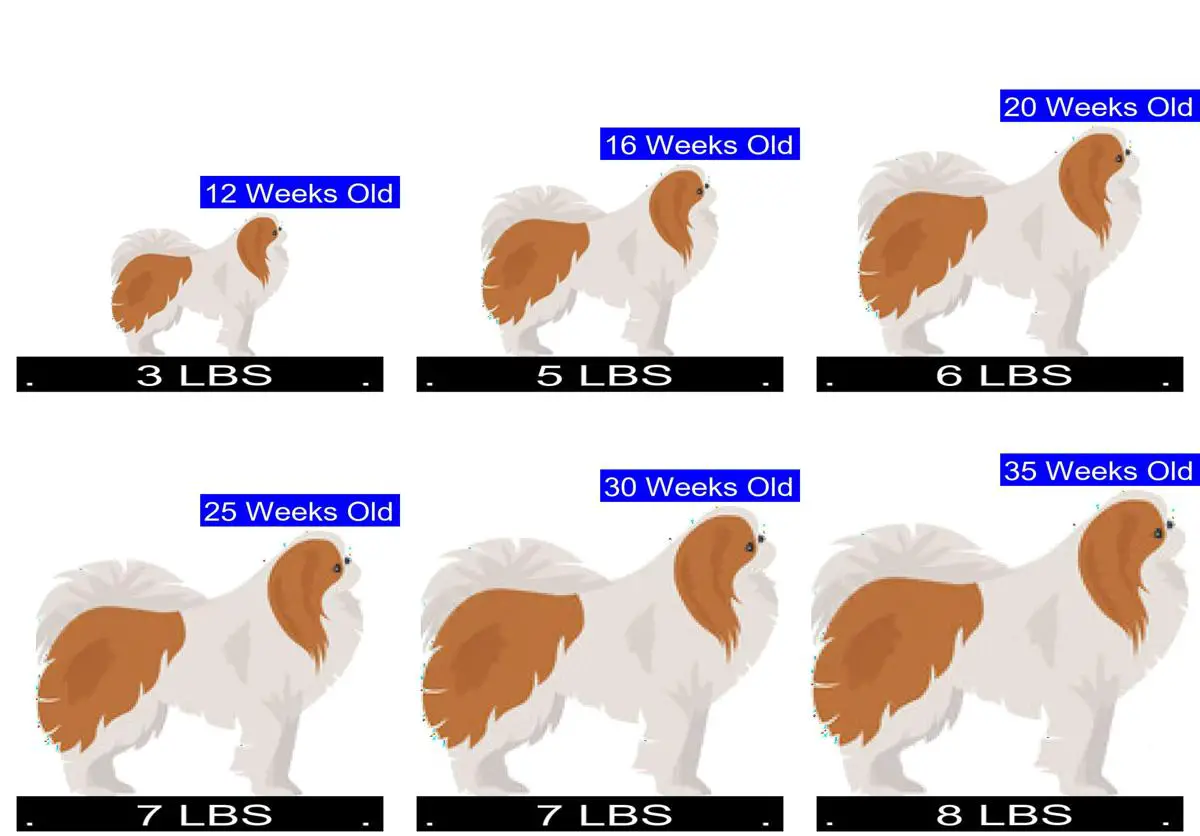
New Japanese Chin owners need to know about the growth of their Japanese Chins. This will help them plan their living spaces accordingly.
Also, knowing the typical growth pattern of the Japanese Chin will help new owners catch the abnormal growth of their Japanese Chin early.
See our calculator for predicting how big your Japanese Chin puppy will get. You will also learn about the typical weight of the Japanese Chin at different ages and how to catch abnormal growth in your Japanese Chin
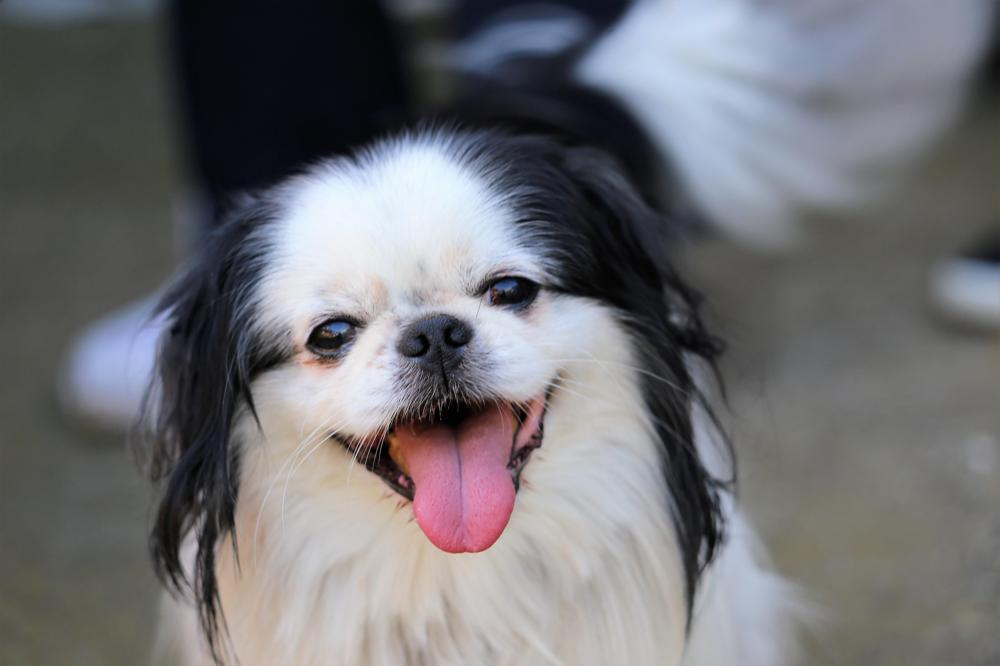
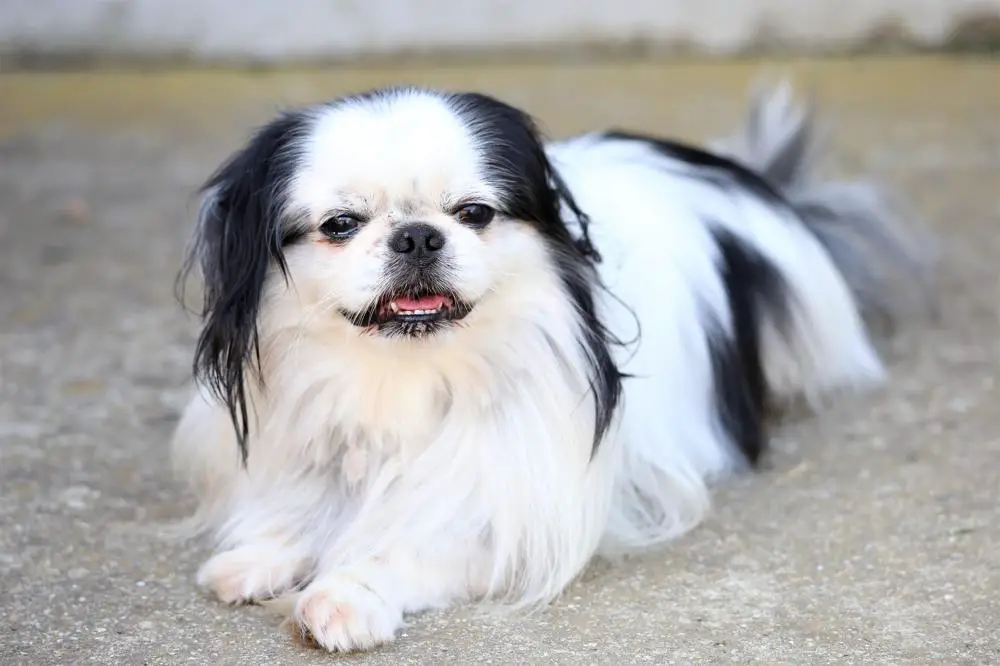
Japanese Chin Litter Size
Researchers from the Norwegian School of Veterinary Science did a study where they counted the numbers of puppies in 17 different Japanese Chin birth litters.
From this study, the researchers found that the average number of puppies that Japanese Chins can have is 1 puppies. Also, the Japanese Chin can have as few as 1 puppies per litter and as many as 4 puppies per litter.
The number of puppies that the Japanese Chin will have depends on factors such as the age of the Japanese Chin, the method of pregnancy, etc.
Click here to see our calculator for predicting how many puppies your Japanese Chin will have and how the litter size of the Japanese Chin compares to the litter size of other dog breeds.
How Fast Japanese Chins Can Run
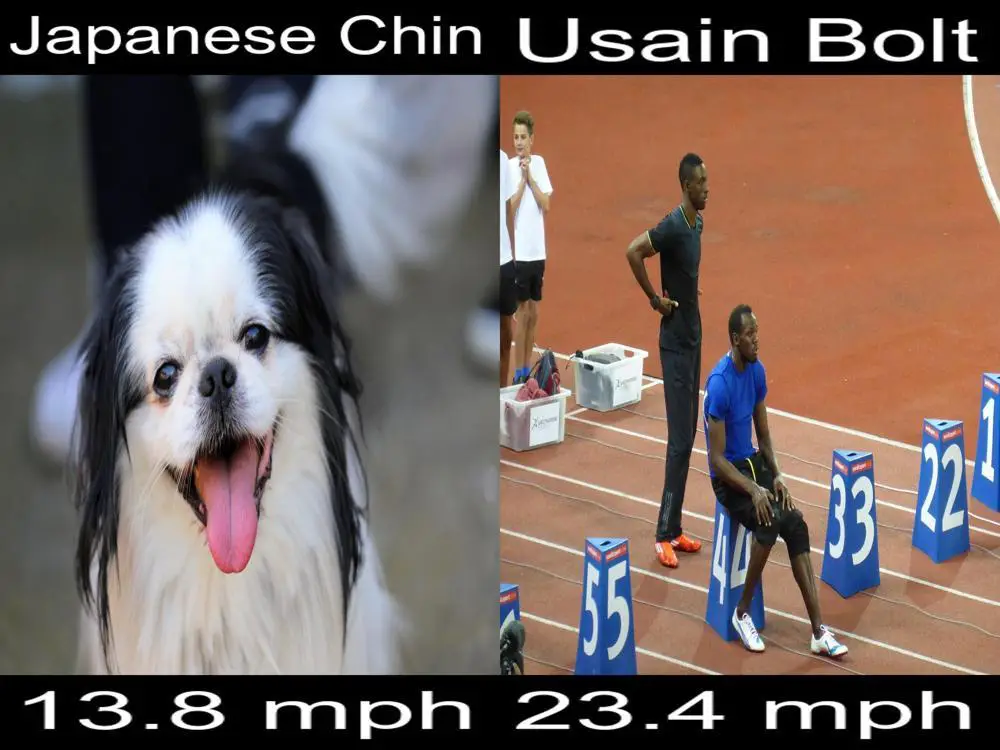
How fast a dog breed can run is a good measure of how athletic the dog breed is.
The American Kennel Club (AKC) regularly conducts dog running competitions. The AKC records the running speed of competing dogs in these competitions. These competitions are open to all dog breeds.
Based on our analysis of the speeds of 3 different Japanese Chins, the average speed of the Japanese Chin is 13.8 mph (22.2 kmph).
The fastest speed on AKC record that the Japanese Chin ran in a race is 15.49 mph (24.9 kmph) and the minimum speed on record in a race for a Japanese Chin is 12.26 mph (19.7 kmph).
Click here to see how the speed of the Japanese Chin compares to the speed of other dogs and other mammals such as cats, horses, humans, etc.
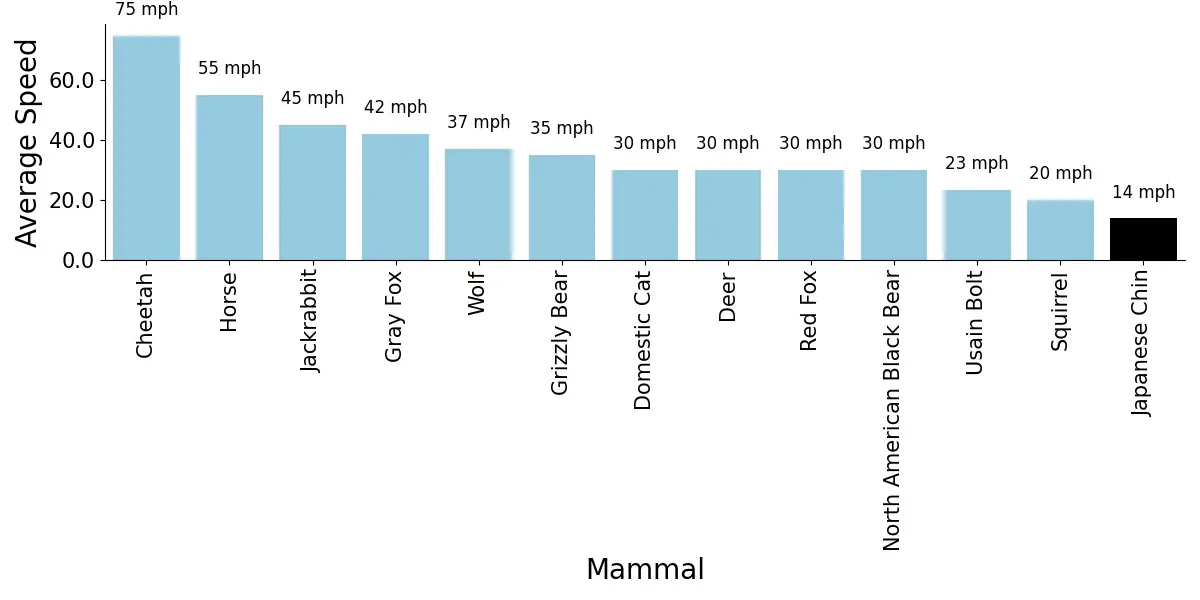
Good Names for Japanese Chins
Here are some really good names that are typical for the Japanese Chin ranked by popularity:
- Pacey
- Marty
- Louie
- Wiffington
- Milo
- Luke
- Best
- Griffin
- Poppi
- Yoshi
How Intelligent are Japanese Chins?
| Japanese Chin | |
|---|---|
| Intelligence Rank | 62 out of 130 dog breeds |
| Trainability | Tend To Learn New Commands After 40 To 80 Repetitions! |
According to Prof. Stanley Coren, a Canadian psychology professor/dog trainer, the total intelligence that a dog demonstrates is the addition of three types of intelligence. These intelligence types are:
- Instinctive Intelligence: This is the natural intelligence that comes from instinct. For example, dog breeds that have been historically bred to be guard dogs will have a high `guarding` intelligence compared to dogs that were not bred for guarding.
- Adaptive Intelligence (learning and problem-solving ability): This indicates what a dog can learn to do for himself or herself. Adaptive intelligence is specific to each dog, and not breed specific. You can improve your dog`s adaptive intelligence by investing time to train your dog.
- Working/Obedience Intelligence: This type of intelligence is breed-specific. Certain dog breeds tend to have higher working/obedience intelligence than some other breeds. This intelligence is the closest to what we might call school-learning ability and it is based upon what the dog can learn to do when instructed by humans. This type of intelligence can be measured for each dog breed and compared to that of other dog breeds.
Professor Stanley Coren measured and ranked the working intelligence of about 130 different dog breeds.
Prof. Coren found that the Japanese Chin has an obedience intelligence rank of 62 out of 130 dog breeds. Thus, Prof. Coren put Japanese Chins in the `Fair Working/Obedience Intelligence Dogs` category.
This means that Japanese Chins tend to learn new commands after 40 to 80 repetitions!.
However, we should mention that a dog should not be judged based on its intelligence alone. There are other important factors you need to consider when deciding on which dog breed to get. These other factors include sociability, adorability, and compatibility of the dog breed with your lifestyle.
See the intelligence ranking of some other dog breeds below:
| Breed | Intelligence Rank |
|---|---|
| Standard Poodle | 2 |
| Golden Retriever | 4 |
| Rottweiler | 9 |
| Australian Cattle Dog | 10 |
| Belgian Sheepdog | 15 |
| Brittany | 19 |
| Weimaraner | 21 |
| Welsh Springer Spaniel | 31 |
| Cairn Terrier | 35 |
| Affenpinscher | 37 |
| Dalmatian | 39 |
| Finnish Spitz | 43 |
| Chinese Shar-Pei | 51 |
| Rhodesian Ridgeback | 52 |
| Dandie Dinmont Terrier | 62 |
| Great Pyrenees | 64 |
| Lhasa Apso | 68 |
| Pekingese | 73 |
| Basenji | 78 |
| Afghan Hound | 79 |
How Popular are Japanese Chins with New Dog Owners?
Every year, the American Kennel Club (AKC) publishes information on how popular a dog breed is in that particular year. The AKC gets the popularity information of a breed from how many dogs of that breed the owners register with the AKC every year. The AKC collects this data for about 200 dog breeds.
The graph below shows the popularity trend of the Japanese Chin.
The popularity of the Japanese Chin averaged over the years is Number 102 out of about 200 dog breeds.
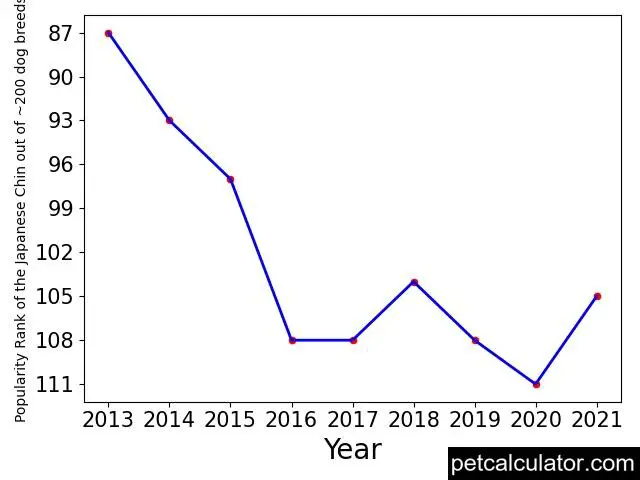
Do not get a dog breed just because it is a popular dog breed. And do not reject a dog breed just because it is an unpopular breed.
Health Problems in Japanese Chins and How to Prevent Them
Every dog breed has its own set of health problems that it tends to develop. There is nothing like a perfect dog breed.
The Japanese Chin is prone to certain genetic health conditions. The Orthopedic Foundation for Animals (OFA) is an organization that keeps track of genetic health problems in dog breeds.
From the extensive records that the OFA keeps, the OFA knows what health problems each dog breed is naturally prone to develop.
Hence, the OFA recommends which health screening breeders should perform on a dog breed to make sure that the breeders won`t breed `defective` dog parents that can pass down defective genes to their puppy offspring.
If you want a Japanese Chin puppy that will grow up to be healthy, make sure that your Japanese Chin breeder screens your puppy or your puppy`s parents for the health problems that the OFA recommends for your puppy`s breed. This will increase the chances that your puppy is free from genetic defects.
The following are the health tests that Orthopedic Foundation for Animals (OFA) recommends that breeders should screen Japanese Chins for:
You can find out more about OFA`s recommended tests for Japanese Chins here.
How to Take Care of Japanese Chin
To take good care of your Japanese Chin, you need to make sure that you groom your Japanese Chin regularly.
Secondly, you need to find a veterinarian in your area that will routinely check the health status of your Japanese Chin regularly, and give you appropriate recommendations on your Japanese Chin`s preventative care.
Thirdly, you need to commit some time to exercise your Japanese Chin daily. Regular exercise helps improve the health and quality of life of your Japanese Chin.
Also, you need to feed your Japanese Chin high-quality dog food, and the food should be of the right amount to prevent your Japanese Chin from getting overweight or underweight.
See our recommendations on what to feed the Japanese Chin and how much food to feed the Japanese Chin at different life stages.
Finally, you need to make sure that your Japanese Chin has access to clean water all the time. See our recommendations on how much water your Japanese Chin needs to drink at different ages.
Dog Breeds That Are Similar to Japanese Chins
If you have not made up your mind on which dog breed to get, you may also want to consider some other dogs similar to the Japanese Chin.
We crunched the numbers and found that the following dog breeds that have similar behavior and temperament as the Japanese Chin:
- Pomapoo (77 percent match with Japanese Chin). Learn more about the Pomapoo here.
- Peek A Poo (79 percent match with Japanese Chin). Learn more about the Peek A Poo here.
Other Things to Know About Japanese Chins
Here are some of the very important characteristics of the Japanese Chin that you need to know about the Japanese Chin breed:
